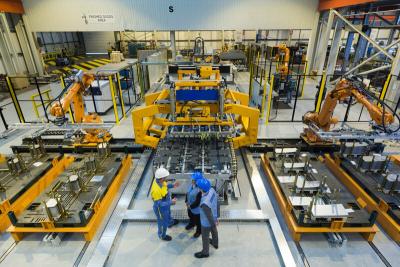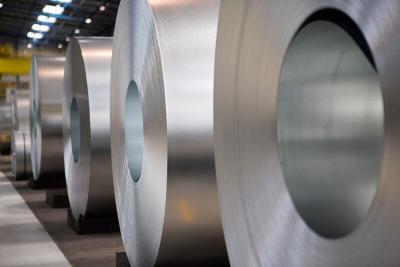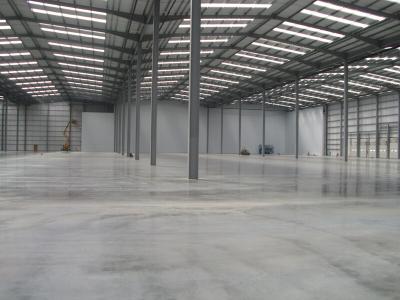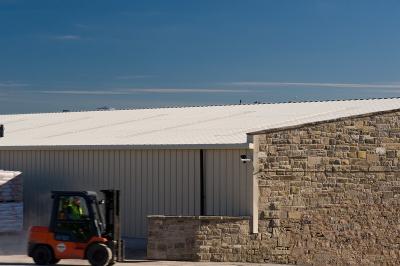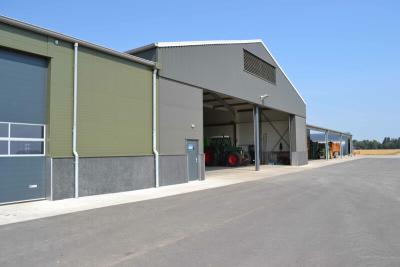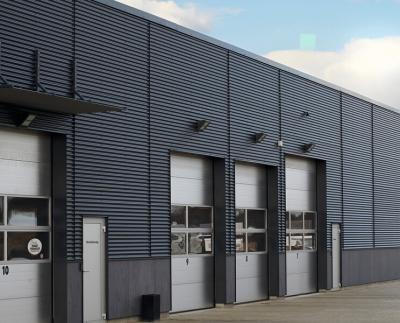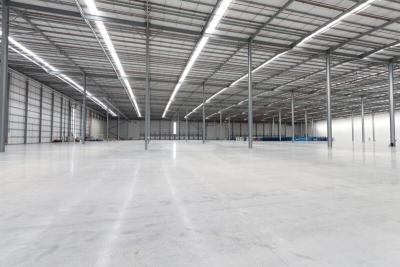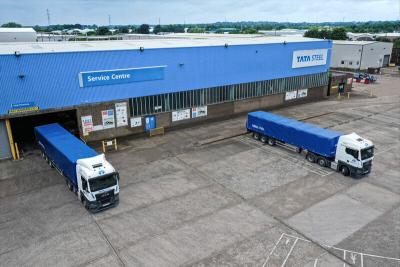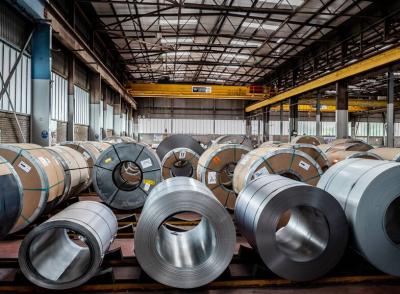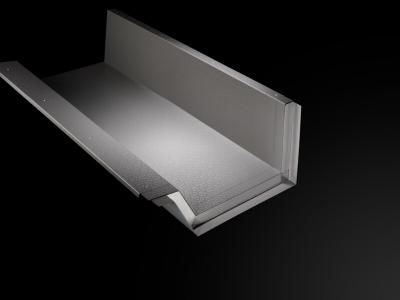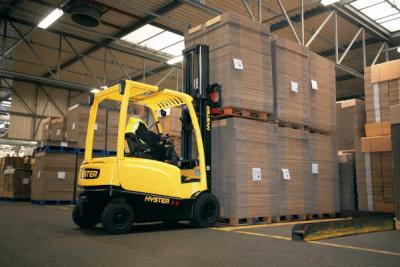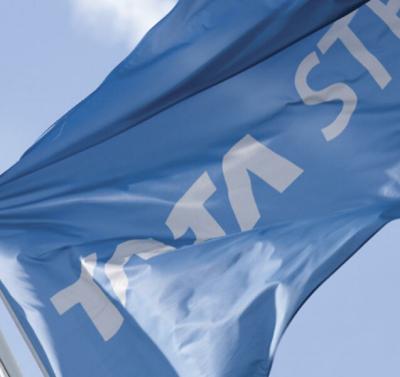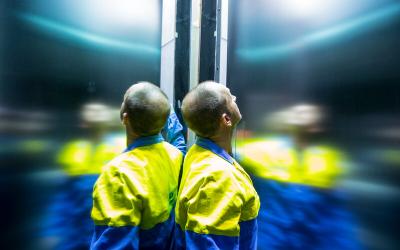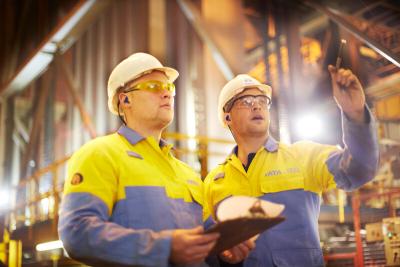Tata Steel today announced it will commence statutory consultation as part of its plan to transform and restructure its UK business. This plan is intended to reverse more than a decade of losses and transition from the legacy blast furnaces to a more sustainable, green steel business.
The transformation would secure most of Tata Steel UK’s existing product capability and maintain the country’s self-sufficiency in steelmaking, while also reducing Tata Steel UK’s CO2 emissions by 5 million tonnes per year and overall UK country emissions by about 1.5%.
Key Highlights
- The plans follow detailed discussions with the UK multi-trade union representative body (UK Steel Committee) and its advisors, in which Tata Steel carefully considered their endorsed proposal for maintaining a single blast furnace
- Having considered that proposal, Tata Steel has agreed to adopt elements of it, but considers that continued blast furnace production is not feasible or affordable
- Tata Steel will now commence statutory consultation on the proposed restructuring plan and support arrangements for affected employees
- Up to 2,800 employees are expected to be potentially affected, out of which around 2,500 roles would be impacted in the next 18 months
- The company will endeavour to maximise voluntary redundancies and proposes to commit in excess of £130 million to a comprehensive support package for affected employees, including redundancy terms, community programmes, skills training and job-seeking initiatives
- This is in addition to the £100 million funding for the Transition Board set up with UK and Welsh governments to support affected employees, contractors and communities
- Port Talbot’s two high-emission blast furnaces and coke ovens would close in a phased manner with the first blast furnace closing around mid-2024 and the remaining heavy end assets would wind down during the second half of 2024. The proposal also includes a wider restructuring of other locations and functions across the company, including the intended closure of the Continuous Annealing Processing Line (CAPL) in March 2025
- In discussion with the UK Steel Committee, Tata Steel has agreed that it would continue to operate the hot strip mill through the proposed transition period and in future. In addition, the downstream and steel processing centres would continue to serve customers by utilising imported semi-finished steel from Tata Steel plants in the Netherlands and India as well as other select strategic suppliers
Under the transformation plan, Tata Steel will embark on a £1.25 billion investment in Electric Arc Furnace technology in Port Talbot and asset upgrades to secure long-term, high-quality production at the UK’s largest steelmaker.
The proposed investment is supported by the UK Government, which has committed up to £500 million to enable the transformation. Tata Steel plans to invest £750 million in the project, alongside funding for a comprehensive support package for affected employees, business restructuring and transition costs as part of its long-term commitment to UK production.
Tata Steel has engaged in several months of detailed discussions with the UK Steel Committee and its advisors, which examined feasibility studies and financial analysis of the long-term viability of steelmaking at Port Talbot.
In discussions with the UK Steel Committee, Tata Steel has agreed to revise its proposal and would continue to operate the Port Talbot hot strip mill throughout the transition period and in future. It has also carefully considered the committee’s endorsed proposal for partial continuity of blast furnace steelmaking assets until Electric Arc Furnace facilities are commissioned in Port Talbot.
As part of the review of the endorsed proposals, Tata Steel commissioned independent engineering studies and analysis of alternative-scenarios which concluded that continued blast furnace production while constructing the new Electric Arc Furnace is not feasible due to the following:
- The projected operating costs of such a configuration are financially unaffordable
- Building the Electric Arc Furnace in an already operating steel melt shop would be fraught with risk, significantly increasing costs, creating a sub-optimal plant layout, delaying implementation of the plan and jeopardising the proposed business transformation programme
- The near end-of-life condition and deteriorating operating performance of several heavy end assets in Port Talbot
Proposed Restructuring Programme
Under Tata Steel’s proposed restructuring programme, Port Talbot’s two high-emission blast furnaces and supporting facilities would be closed in a phased manner. The first blast furnace and coke ovens closing around mid-2024 and then progressively winding down the remaining heavy end assets during the second half of the calendar year. The proposal also includes a wider restructuring of other locations and functions across the company, including the intended closure of the Continuous Annealing Processing Line (CAPL) in March 2025.
Tata Steel has developed detailed plans which would enable it to secure continuity of supply through its existing downstream and steel processing sites for UK and overseas customers, utilising imported semi-finished steel including from Tata Steel plants in the Netherlands and India as well as other select strategic suppliers until the commencement of Electric Arc Furnace production.
In order to be able to deliver the proposed Electric Arc Furnace in 2027, Tata Steel has begun engineering design work and construction planning for a furnace which would be among the most modern in the world. It is in advanced planning discussions with National Grid in relation to enabling infrastructure and has also begun engagement with the local authority and regulators.
Support for Employees
The transition at Tata Steel’s UK operations is subject to consultation but could be expected to result in up to 2,800 potential job losses across the business out of which around 2,500 roles could be impacted during the next 18 months. Tata Steel expects that a further 300 roles could be impacted in three years, which could include the potential consolidation and rationalisation of cold rolling assets in Llanwern once the required investments are completed at Port Talbot.
Throughout the proposed restructuring, Tata Steel remains committed to maximising voluntary redundancy before seeking any compulsory reductions.
Tata Steel will support all those potentially impacted through a comprehensive support package including redundancy terms, skills training, community-support programmes and job-seeker initiatives.
Tata Steel and the UK and Welsh governments have also established a dedicated Transition Board to support potentially affected employees, contractor employees and their communities, with £100 million funding for short-term support and long-term economic regeneration.
T V Narendran, Tata Steel’s Chief Executive Officer and Managing Director, said: “The course we are putting forward is difficult, but we believe it is the right one. Having invested almost £5 billion¹ in the UK business since 2007, we must transform at pace to build a sustainable business in the UK for the long-term. Our ambitious plan includes the largest capital expenditure in UK steel production in more than a decade, guaranteeing long-term, high-quality steel production in the UK and transforming the Port Talbot facility into one of Europe’s premier centres for green steelmaking.
“We recognise this proposed restructuring would have a major impact on the individuals and communities concerned, whom we will support with dignity and respect. In consultation with our union partners, Tata Steel will offer a comprehensive support package to mitigate the impact of any anticipated job losses, including helping employees to retrain and find new jobs. We will continue our work with the UK and Welsh governments, trade unions and the community to help those who may be affected through the proposed transition.”
Economic Regeneration and Emission Reductions
Subject to consultation, and subsequent to the proposed closure of some of the heavy end assets in Port Talbot, Tata Steel will continue to focus on facilitating wider economic regeneration in the Port Talbot area.
The proposal to invest in Electric Arc Furnace technology, which would be fed by predominantly UK-produced scrap, follows a comprehensive analysis into all the financial and technological options available. The transition mirrors the successful installation of such low-carbon production facilities in other major steel producing markets such as the United States, where it has cut emissions whilst guaranteeing production of complex, high quality steel. On completion, the programme would transform the competitiveness of Tata Steel UK, secure most of its capability in terms of end products, whilst cutting its carbon emissions by about 85% and the UK’s overall carbon emissions by about 1.5%. The proposal to use UK-sourced scrap as the raw materials for future steelmaking would also maintain the country’s self-sufficiency as almost all of the raw materials for the current blast furnaces need to be imported.
Following today’s announcement, the company will now begin a formal information sharing and consultation process with employees and their representatives on the proposals.
-ends-
Notes to Editors:
The proposed restructuring is subject to a detailed consultation process with the relevant stakeholders, including employees and trade unions.
¹ Tata Steel has invested £4.7 billion in its UK business since it acquired the business in 2007. This includes improvements to the UK steelmaking operations and processing sites, as well as covering financial losses and pension restructuring costs. In addition to this, Tata Steel has provided additional capital support to service Tata Steel UK’s share of debt. Inclusive of that, Tata Steel has invested a total of £6.8 billion in Tata Steel UK.
For further information, please contact:
Tim Rutter, Head of PR, Tata Steel UK tim.rutter@tatasteeleurope.com +44 (0)7850 990755 or
Abigail Thomas: abigail.thomas@tatasteeleurope.com +44 (0)7972 575062 or
Rob Yates: robert.yates@teneo.com +44 (0)7715 375 443 or
Email Press Office: ukpressoffice@tatasteeleurope.com
Please visit greensteelfuture.com for further information and imagery.

- The Tata Steel Group has been named one of the most ethical companies in the world, and is among the top producing global steel companies with an annual crude steel capacity of 34 million tonnes.
- Tata Steel in the UK has the ambition to produce net-zero steel by 2045 at the latest, and to have reduced 30% of its CO2 emissions by 2030.
- Tata Steel is the largest steelmaker in the UK with primary steelmaking at Port Talbot in South Wales supporting manufacturing and distribution operations at sites across Wales, England and Northern Ireland as well as Norway, Sweden, France and Germany. It also benefits from a network of international sales offices around the world.
- Tata Steel employs more than 8,000 people and has an annual crude steel capacity of 5 million tonnes, supplying high-quality steel products to demanding markets, including construction and infrastructure, automotive, packaging and engineering.
- Tata Steel Group is one of the world's most geographically-diversified steel producers, with operations and a commercial presence across the world.
Follow us on social media









